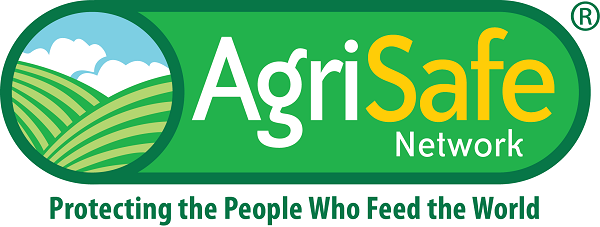AgriSafe Learning
Winter Farm Flood Health Threats: Risk Factors During Recovery
-
Register
- Non-member - Free!
- Member - Free!
This presentation will highlight basic precautions to prevent possible diseases and injuries during and after flooding. Floodwater can be contaminated by pollutants including sewage, human and animal feces, pesticides and insecticides, fertilizers, oil, asbestos, rusting building materials, and others.
Winter floods can heighten the risk of health threats such as mold, tetanus bacteria, contaminated well-water, hypothermia and high stress. This is especially true on farms and ranches where inherent farm hazards such as machinery and equipment, livestock, and agricultural chemicals are displaced and co-mingle, putting all emergency response personnel, farm workers and family members in danger.
Chad Roy, PhD, MSPH
Director, Infectious Disease Aerobiology, Director, Biodefense Research Programs at the Tulane National Primate Research Center, Professor of Microbiology & Immunology, Tulane School of Medicine
Dr.Roy is a professor of Microbiology and Immunology at Tulane University Schoolof Medicine and also the Director of Infectious Disease Aerobiology at theTulane National Primate Research Center. Dr. Roy's research focuses onrespiratory health and the aerobiology of infectious diseases. Dr. Roy isa career aerobiologist, and has been active in numerous investigations for anarray of high consequence pathogens over the years. Currently, Dr. Royand his laboratory enterprise are heavily engaged in the COVID-19 response incooperation with the US NIH, CDC, and other international partners. Heserves on numerous ad hoc SME panels contributing to the ongoingresponse to COVID-19, including as an invited panelist with the World HealthOrganizations’ (WHO) committee on development of animal models for futuretesting of medical countermeasures.
Linda Emanuel, BSN, RN
Community Health Liaison
AgriSafe Network
Shaped by her experience as a Registered Nurse in rural Nebraska and as part of a multi-generational family farm, Linda grew into advocating for and educating agricultural producers and healthcare professionals. As the Agricultural Health Liaison at the AgriSafe Network, she is responsible for curriculum design of outreach programs that serve the holistic health needs of today’s farmers and ranchers. She serves as project lead within the Midwest region for the Total Farmer Health Coach program, which has a direct focus on behavioral health. Her liaison work is most exceptionally seen in the Talking Total Farmer Health podcast which she hosts, and the health/wellness outreach trainings she leads within the agricultural population she serves.
Linda has a diverse background in acute care nursing, intensive care, pediatrics, home health care, and rural primary care clinics. She is an AgriSafe Nurse Scholar, and a Nebraska LEAD fellow. She belongs to the American Nurses Association, Rural Nurses Organization, and Nebraska Nurses Association. She and her husband own and operate a row crop farming operation that has welcomed back their sons and families to continue a legacy.
Bruce I. Dvorak, Ph.D., P.E.
Professor of Civil Engineering and Biological Systems Engineering, and Environmental Engineering Extension Specialist, University of Nebraska-Lincoln
Bruce I. Dvorak, Ph.D., P.E. is a Civil Engineering and Biological Systems Engineering Professor at the University of Nebraska-Lincoln. He performs research and extension outreach on drinking water (both domestic and small rural systems) and environmental sustainability issues. He has published over 45 refereed journal papers and 30 extension publications. He is a member of the American Water Works Association Board of Directors and serves as the Associate Director of Outreach for the US EPA-funded Center “Water Innovation Network for Sustainable Small Systems”.
Christine Chasek, PhD, LIMHP, LADC, LPC
Associate Professor and Chair of the Counseling Department, University of Nebraska - Omaha
Christine Chasek is an Associate Professor at the University of Nebraska Omaha. She has strong rural roots and teaches many behavioral health classes in a Midwestern rural University. Dr. Chasek has more than 20 years of experience practicing mental health and drug and alcohol counseling as a Licensed Independent Mental Health Practitioner and a Licensed Alcohol and Drug Counselor in rural areas. Dr. Chasek also serves on the Nebraska Alcohol and Drug Licensing Board and is President of the International Association of Addiction and Offender Counselors.
Aaron M. Yoder, PhD
Associate Professor, Environmental, Agricultural and Occupational Health, University of Nebraska Medical Center and Nebraska Extension - Biological Systems Engineering, University of Nebraska-Lincoln
Aaron Yoder grew up in central Pennsylvania where he spent time working on his grandfather's farm. He graduated from Penn State University with a BS and MS in Agricultural Systems Management and Environmental Pollution Control, respectively. He went on to complete a Ph.D. from Purdue University in Agricultural and Biological Engineering where he focused on the ergonomic evaluation of assistive technology for AgrAbility clients. Aaron is currently an Assistant Professor in the Department of Environmental, Agricultural, and Occupational Health at the University of Nebraska Medical Center and works with projects through the NIOSH-funded Central States Center for Agricultural Safety and Health. He is the president of the International Society for Agricultural Safety and Health and serves on the Board of Directors of the Agricultural Safety and Health Council of America and Progressive Agriculture Foundation. Dr. Yoder also maintains leadership roles in the eXtension.org/AgSafety Community of Practice, American Society of Agricultural and Biological Engineers, and the USDA NCERA197 Committee for establishing priorities at Land Grant University for agricultural safety and health research and education programs.
Quick Search
Technical Difficulties
Submit a help ticket if you need technical assistance.
Having Computer Issues? Please check your internet browser and security settings to allow permissions for this website. Browsers: Microsoft Edge version 40 or higher; Chrome version 60 or higher, Firefox version 50 or higher; or Safari version 10.1 or higher. We recommend using Google Chrome or Firefox as your browser.
